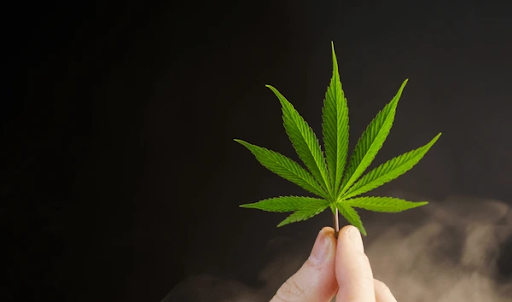Cannabis addiction, while often overlooked compared to other substance use disorders, can have profound effects on mental health. The journey to recovery involves various strategies and treatments aimed at restoring balance and improving overall well-being. This blog explores how effective cannabis addiction treatment can enhance mental health and the role of a rehab centre in facilitating this process.
Understanding Cannabis Addiction
Cannabis addiction, also known as cannabis use disorder, occurs when individuals develop a dependency on cannabis to the extent that it disrupts their daily lives. Regular use can lead to tolerance, where increasing amounts of the drug are needed to achieve the same effects, and withdrawal symptoms when usage is reduced or stopped.
Impact on Mental Health
The effects of cannabis addiction on mental health are significant and varied. Individuals struggling with addiction may experience the following:
- Anxiety and Depression: Chronic cannabis use can exacerbate symptoms of anxiety and depression. The drug’s psychoactive effects might initially seem to alleviate these symptoms, but over time, it can contribute to worsening mental health issues.
- Cognitive Impairment: Long-term cannabis use can impair cognitive functions, affecting memory, attention, and learning abilities. This cognitive decline can further impact overall mental well-being and daily functioning.
- Motivation Issues: Often referred to as “a motivational syndrome,” chronic cannabis use can lead to a lack of motivation and drive, impacting personal and professional goals and overall quality of life.
How Cannabis Addiction Treatment Can Enhance Mental Health
1. Restoring Balance
Effective cannabis addiction treatment aims to restore mental balance by addressing both the physical and psychological aspects of addiction. Detoxification and therapy help individuals regain control over their mental health by managing withdrawal symptoms and underlying psychological issues.
2. Improving Cognitive Function
Treatment programs often include cognitive-behavioral therapy (CBT) and other therapeutic interventions that focus on improving cognitive function. These therapies help individuals develop coping strategies, improve problem-solving skills, and address any cognitive impairments caused by cannabis use.
3. Addressing Co-Occurring Disorders
Many individuals with cannabis addiction also experience co-occurring mental health disorders, such as depression or anxiety. Cannabis addiction treatment often involves integrated care that addresses these co-occurring conditions simultaneously, leading to a more comprehensive approach to mental health.
4. Enhancing Emotional Regulation
Therapeutic interventions in addiction treatment help individuals learn to manage their emotions more effectively. By developing better emotional regulation skills, individuals can reduce the reliance on cannabis as a coping mechanism and improve their overall emotional well-being.
5. Building Healthy Habits and Relationships
A key component of cannabis addiction treatment is fostering the development of healthy habits and relationships. Rehab centres provide support and education on building a healthier lifestyle, including developing positive social connections and engaging in constructive activities that promote mental health.
The Role of a Rehab Centre in Treatment
1. Structured Environment
A rehab centre offers a structured and supportive environment where individuals can focus on their recovery. This environment provides a safe space free from the triggers and stressors associated with cannabis use, allowing individuals to concentrate on their treatment and mental health.
2. Professional Support
Rehab centres employ a team of professionals, including doctors, therapists, and counsellors, who provide specialized care tailored to individual needs. These professionals offer guidance, support, and evidence-based treatments to address both addiction and mental health issues.
3. Comprehensive Treatment Programs
Rehab centres often provide comprehensive treatment programs that include medical detoxification, individual and group therapy, and relapse prevention strategies. These programs are designed to address the various aspects of cannabis addiction and promote long-term recovery and mental health.
Conclusion
Cannabis addiction treatment can have a profound positive impact on mental health by restoring balance, improving cognitive function, addressing co-occurring disorders, and fostering emotional regulation. A rehab centre plays a crucial role in providing the structured environment, professional support, and comprehensive programs needed for effective treatment and recovery.

